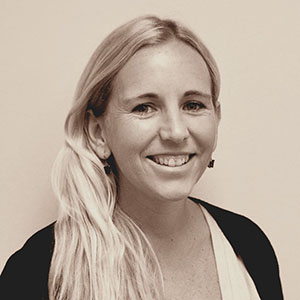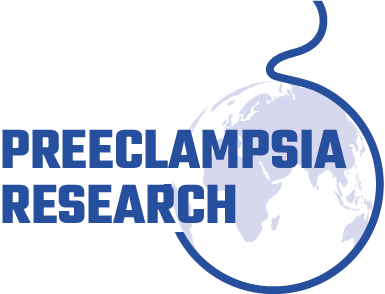Catherine Cluver
MD, Subspecialist Maternal-Fetal Medicine, Associate ProfessorPrincipal investigator for PROVE, Principal investigator for PI trials

Background
I am an Obstetrician-Gynaecologist, Maternal-Fetal Medicine subspecialist and clinician researcher. I completed my undergraduate medical studies and postgraduate studies at Stellenbosch University. I qualified as an Obstetrician-Gynaecologist cum Laude in 2011 and was awarded the Daubenton Medal for outstanding results in the Fellowship examination of the College of Obstetricians and Gynaecologists of South Africa and the medal for the Best Postgraduate Student for a Structures Masters Qualification at Stellenbosch University. I then completed the Certificate in Maternal-Fetal Medicine in 2016, after completing a year’s fellowship training in Melbourne, Australia in 2013 followed by training at Tygerberg Hospital, Stellenbosch University. I completed my PhD in 2018 and was appointed as an associate professor in the Department of Obstetrics and Gynaecology in 2019.
Academic Qualifications
I am a qualified Obstetrician and Gynaecologist and a Subspecialist in Maternal Fetal Medicine. To date I have published over 40 papers in leading international journals including the Lancet, Cochrane Library, the American Journal of Obstetrics and Gynaecology, the British Journal of Obstetrics and Gynaecology and the International Journal of Ultrasound in Obstetrics and Gynaecology.
Study and Career Record
Throughout my career I have aimed to demonstrate achievements of high standard. Highlights include being awarded the Discovery Academic Fellowship for my PhD studies, the Daubenton Medal for outstanding results in the Fellowship examination of the College of Obstetricians and Gynaecologists of South Africa and the Award for the Best Postgraduate Student for a Structured Masters Qualification at the Health Sciences Campus at Stellenbosch University in 2011 and an award for Research Excellence from the American Society for Maternal Fetal Medicine High Risk Pregnancy Experts earlier this year.
Teaching
Teaching has been a core part of my role since I started training as a registrar in Obstetrics and Gynaecology. As a registrar I was responsible for assisting with the clinical training of the medical students. As a newly qualified specialist I took on the role of course coordinator for the third-year medical students early clinical rotation. During this time, I created a new evidence-based medicine training program using Cochrane reviews which is still in use. I moved the course onto SunLearn and added many electronic resources including teaching videos. There was a shortage of material on examination of the placenta, so I wrote, produced and acted in a video on examination the placenta. This video is now freely available on the WHO Reproductive Health Library. I was also involved in creating a video on Laparoscopic Sterilization which is also freely available on the WHO Library and is one of the most watched videos.
When I started my subspecialist training in Maternal-Fetal medicine I realized there were no resources available that linked diagrams and ultrasound videos of the common congenital fetal abnormalities. It is particularly difficult to identify certain fetal cardiac and renal abnormalities. I therefore set out on an ambitious project with the help of leading international sonologists to create diagrams linked to annotated YouTube videos to enable clinicians working in remote areas or areas without access to specialists to assist them in making the correct diagnosis and to enable them to assist with decisions on the correct antenatal and postnatal management. These resources have been taken up by the International Society of Obstetrics and Gynaecology and were the most liked post ever on their online Facebook platform.
I have been involved in lecturing undergraduate and postgraduate students in both South Africa and Australia and have examined students in both countries. I have been an examiner for the South African College of Medicine.
I have supervised 4 MMed students, all of whom have completed their MMed and published their research. I have been involved in organising ultrasound teaching courses and have hosted symposiums on Preeclampsia with several invited international speakers.
I have written a chapters for a South African Obstetric undergraduate textbook and a chapter for a postgraduate International Textbook, namely High Risk Pregnancy: Management Options with online Resource, 5th Edition. Both textbooks are recommended reading for the Fellowship in Obstetrics and Gynaecology.
Community interaction and service delivery
I am an elected as a Council Member for the South African Society for Ultrasound in Obstetrics and Gynaecology. I have been involved in service delivery since starting a s a registrar in Obstetrics and Gynaecology and currently work as a senior consultant in the Maternal Fetal Medicine Clinic at Tygerberg Hospital. I have created and assisted with the creation free online teaching videos on important health aspects including examination of the placenta and laparoscopic sterilization and have created online teaching resources for fetal ultrasound to assist clinicians working in remote areas and areas without adequate specialist support.
Research and publications
I have set up the Preeclampsia Research Unit in collaboration with leading experts from the University of Melbourne and University of Gotenburg. We completed our first double blind randomised control trial assessing whether esomeprazole could be used as a therapeutic to treat preterm preeclampsia (PIE trial). This trial, which recruited 120 women was completed in just under 14 months, the fastest recruitment ever recorded for a preeclampsia therapeutic trial, and was completed at just one site, Tygerberg Hospital. The protocol was published in the BMJ open Journal and the trial manuscript was published in the American Journal of Obstetrics and Gynaecology. We are also the first trial unit to incorporate pre-eclampsia biomarkers and pharmacokinetics. We recently completed a second double blind randomised control trial to assess whether metformin can be used as a therapeutic for preterm pre-eclampsia (PI 2 trial- submitted for publication).
In collaboration with researchers from the University of Uppsala, Sweden, the Baylor College of Medicine, Texas, USA, and the University of Melbourne, Australia we have set up the PROVE Biobank. This is the first biobank of pregnant women where we collect clinical information, biological samples (including plasma, cerebrospinal fluid, saliva, stool, urine, placenta and cord blood) prospectively in women who have developed severe complications of pre-eclampsia and in matched controls with pre-eclampsia and women without pre-eclampsia. The participants also undergo MRI scans of the brain and heart where applicable, echocardiography and cerebral Doppler studies.
Together with Prof Justus Hofmeyr, from the East London Hosptal Complex, we developed a new technique to deliver babies with the dangerous complication of shoulder dystocia. The Posterior Axilla Sling Technique (PAST) – which uses a sling to deliver the stuck arm – has been published in leading international journals and is now included international (NICE) guidelines and UptoDate. It has also been included in training videos on shoulder dystocia on the WHO Reproductive Health Library. We have both been invited nationally and internationally to present this technique and the register of all cases where the technique has been used around the world. We have published more than 5 articles on the technique and shoulder dystocia.
Prenatal alcohol exposure is common in Cape Town South Africa. I have recently completed a study where we performed neurocognitive testing, intellectual assessments and behaviour profiling on 500 children at the age of 4 years to assess the effects of prenatal alcohol exposure on this vulnerable group. This research has been presented at National and International Conferences and will be submitted for publication this year.
I have been an invited speaker to the Global Obstetric Update in Melbourne, Australia for the past two years and an invited speaker to the Safe Passage Conference on Prenatal Alcohol Exposure. I have presented my research at numerous international and national conferences and have been an invited speaker at many other national and international forums.
